Many job seekers face the common pain points of uncertainty and worry when it comes to their employment background check. A mistake or outdated information could be holding them back from landing their dream job. But there is a solution: conducting your own background check.
To get an employment background check on yourself, you need to gather your criminal record, credit record, employment history, driving record, educational background, and reference checks from various sources. You have the option to do it yourself or get the help of a background check company.
In this article, we will provide you with a step-by-step guide on how to run a comprehensive background check on yourself even before the hiring process starts.
Quick Navigation
- Step-By-Step Guide on How To Obtain Your Criminal Record
- Understanding the Results of Your Personal Background Check Report
- Why Do You Need to Run A Personal Background Check?
- Conclusion
Step-By-Step Guide on How To Obtain Your Criminal Record
Obtaining your criminal record is an important part of conducting an employment background check on yourself.
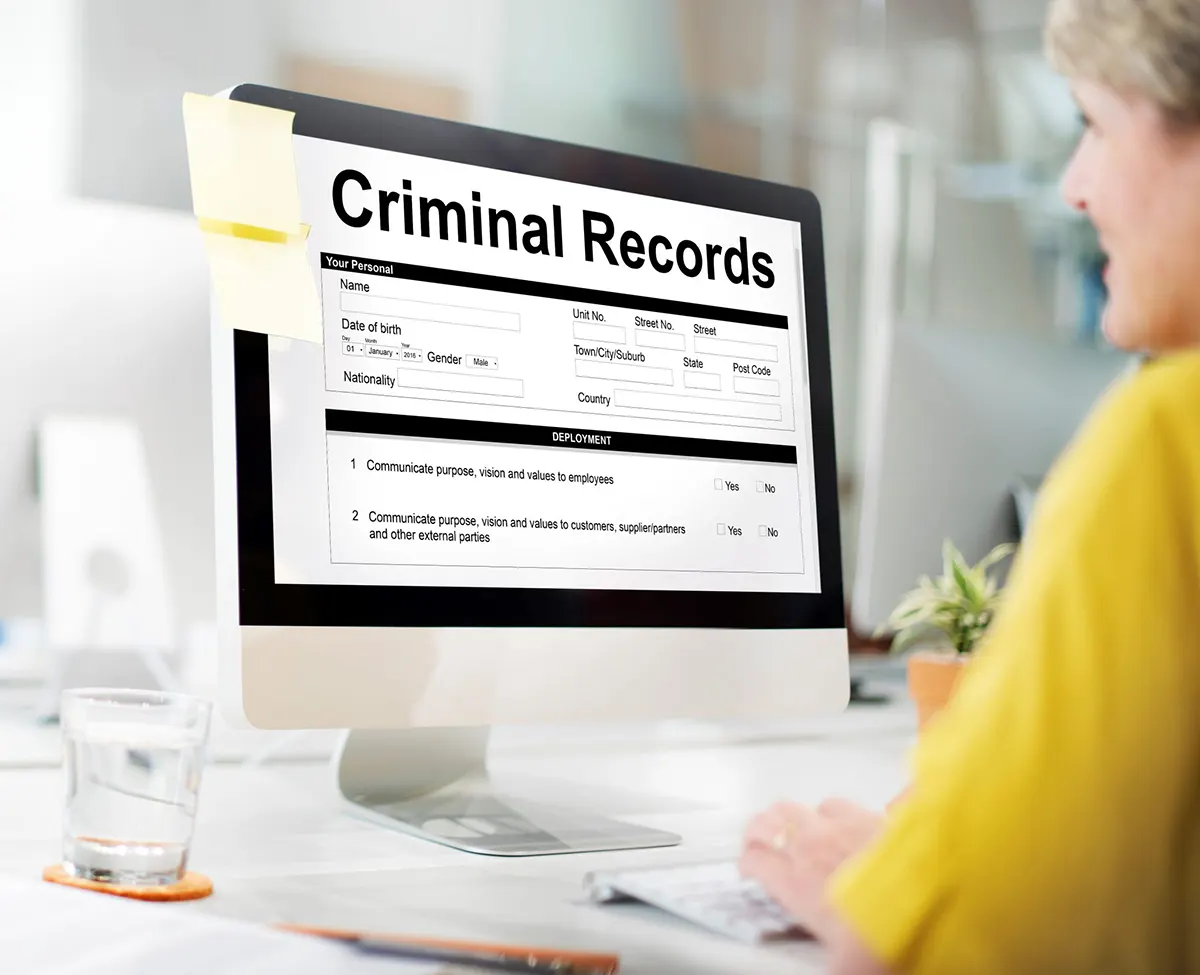
Your criminal record will contain any criminal convictions or arrests you have had, and potential employers may view this information when considering you for a job.
Here is a more detailed step-by-step guide on how to run a personal background check:
Step 1: Determine the appropriate agency to contact
The agency that maintains criminal records varies by state, but it is typically the state’s law enforcement agency, such as the State Police or Department of Justice.
You can search online using your computer’s search engine for your state’s criminal records agency, or contact your local courthouse for more information.
Step 2: Submit your fingerprints
In most cases, you will need to submit your fingerprints in order to obtain a copy of your criminal record.
You can do this by contacting your local law enforcement agency and requesting to have your fingerprints taken. There may be a fee associated with fingerprinting.
Step 3: Submit your request and payment
Once you have obtained your fingerprints, you can submit your request for your criminal record to the appropriate agency.
You may need to fill out a request form, provide identification, and pay a fee. The fee varies by state and government agencies and may be waived for certain individuals, such as victims of crimes.
Step 4: Wait for your record to be processed
The processing time for a criminal record request varies by state and agency, but it can take several weeks to receive a response.
Comprehensive background checks may take longer. However, some agencies may offer expedited processing for an additional fee.
Step 5: Review your criminal record for accuracy
Once you receive your criminal record, review it thoroughly for accuracy. If there are any errors or discrepancies, like incorrect criminal convictions, contact the government agency to have them corrected.
It is important to note that not all criminal records can be considered public records. Also, some states may have restrictions on who can access certain types of criminal records.
There are states that may allow for certain criminal records to be expunged or sealed, meaning they will not show up on a background check.
If you have any questions about obtaining your criminal record or the information contained within it, it is recommended to consult with an attorney.
Understanding the Results of Your Personal Background Check Report

Understanding the results of your employment background check is crucial to identifying any potential issues that may arise when applying for a job.
Here are some key aspects to consider when reviewing the results of your employment background check:
Criminal history
Your criminal history is a record of any arrests, convictions, or other legal proceedings related to criminal activity.
It may include information such as the date of the offense, the type of offense, and the disposition of the case.
To run a background check focusing on criminal history, you can contact your state’s criminal justice agency, country courts, or the FBI. Depending on the state, there may be a fee for this service.
It’s important to review your criminal history for accuracy and address any errors or discrepancies. If you have a criminal history, be upfront and honest about it with potential employers.
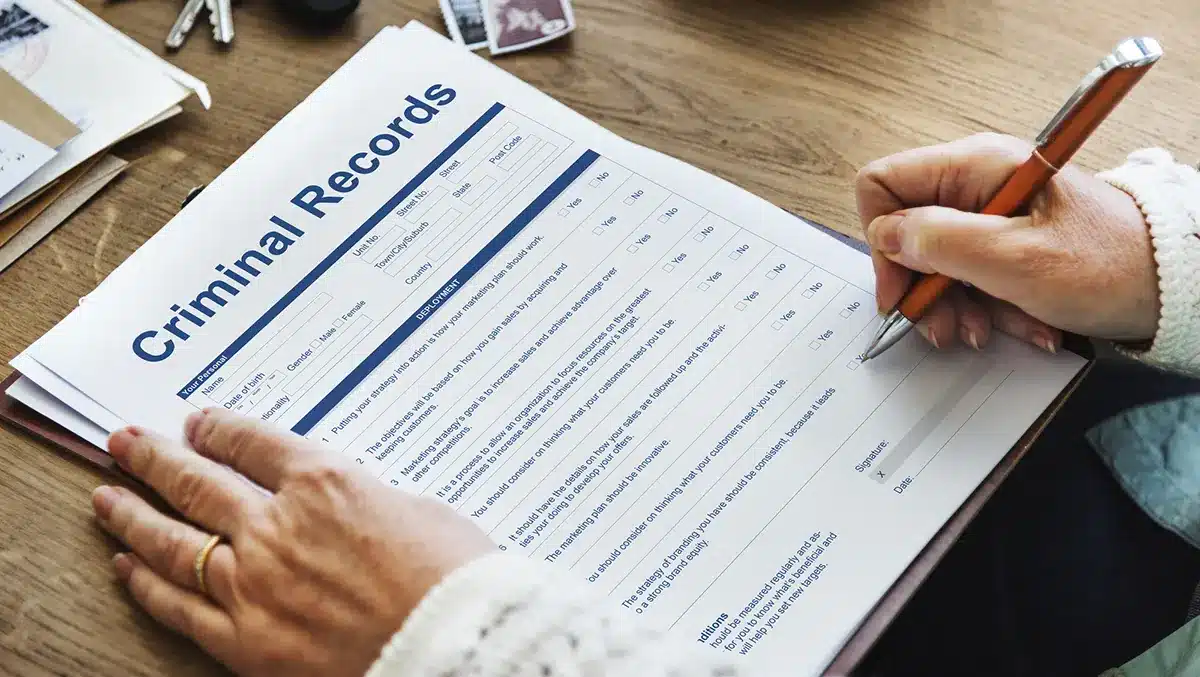
It’s better to be clear about background than have your employers see your bad record on online criminal conviction databases and other public records.
Depending on the nature of the offense and how long ago it occurred, it may not necessarily disqualify you from getting the job.
If you have a criminal history, it may be helpful to provide a personal statement explaining the circumstances of the offense and what you have done since then to demonstrate your rehabilitation and commitment to being a responsible employee.
Credit history
Your credit history is a record of your borrowing and repayment activity, including loans, credit cards, and other financial accounts.
It includes information such as your payment history, the amount of debt you owe, and any delinquent accounts.
To obtain your credit history, you can request a free credit report from each of the three major credit bureaus – Equifax, Experian, and TransUnion – once per year.
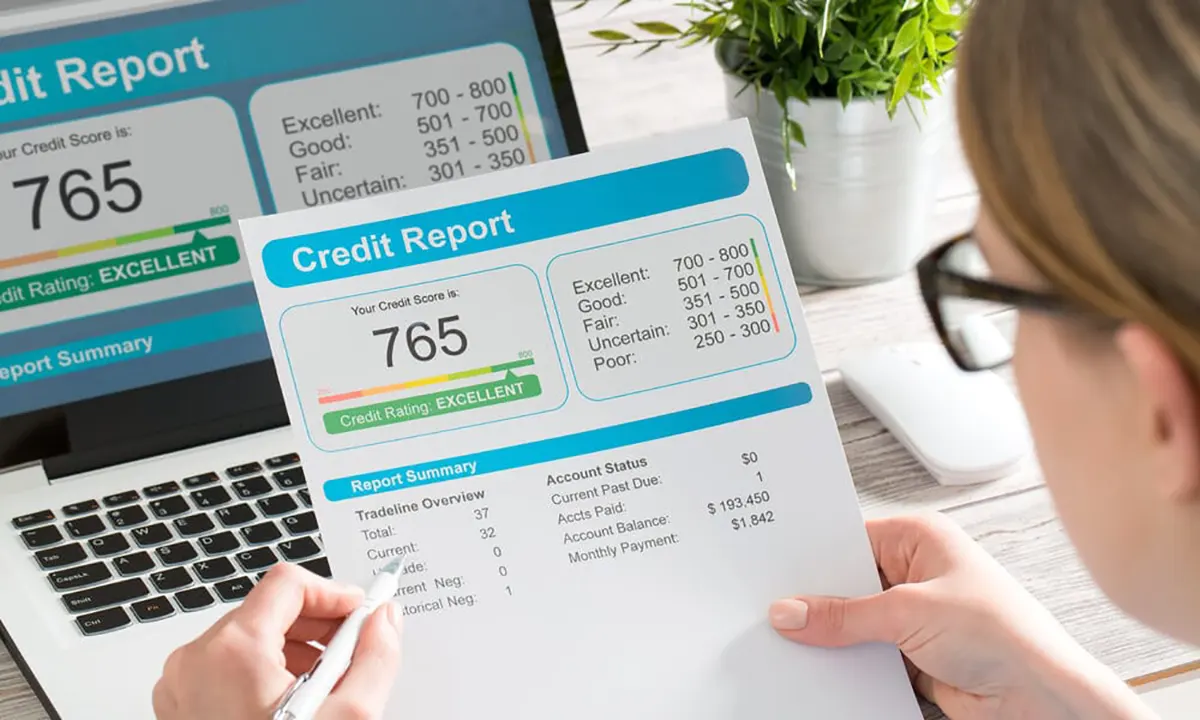
You can also access your credit report online through various credit monitoring services.
It’s important to review your credit history for accuracy and address any errors or discrepancies. Make sure that everything shows accurate credit transactions.
Negative information, such as late payments or delinquent accounts, can negatively impact your credit score and potentially affect your job prospects.
If you have negative information in your credit history, it’s important to be proactive in addressing it.
You may be able to negotiate with creditors to resolve outstanding debts or work with a credit counseling service to develop a repayment plan.
Driving records
A driving record is a document that provides a comprehensive driving history of a person, including traffic violations, accidents, license suspensions, and other relevant information.

It is often used by employers, insurance companies, and government agencies to assess a person’s driving behavior and risk level.
To obtain a copy of your driving records, you can contact your state’s Department of Motor Vehicles or visit their website to request it.
Employment history
Your employment history is also a significant factor in a normal personal background check.
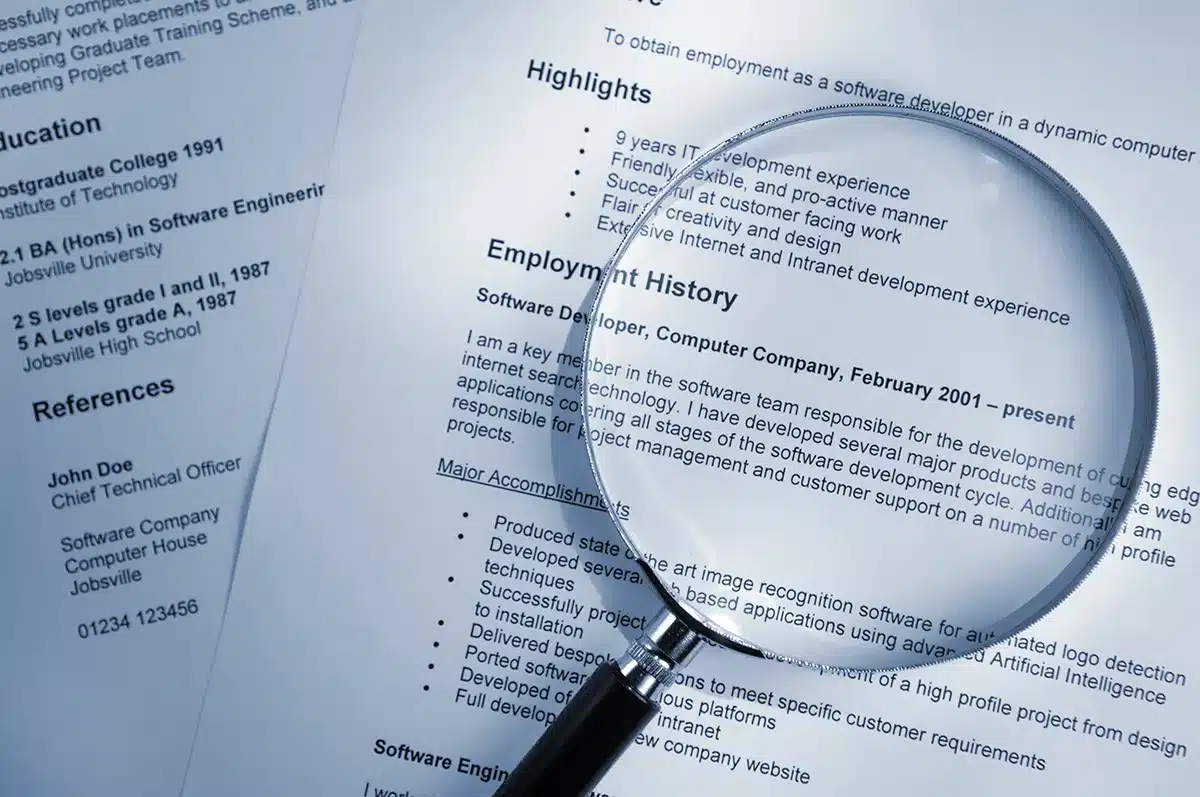
Double-check that the information about your past employers is accurate and that there are no gaps in your employment history that may raise red flags.
If there are gaps, be prepared to explain them to potential employers.
Education History
Verifying your educational background is an essential step in conducting an employment background check on yourself.
Your potential employer will likely verify your educational background to ensure that you have the qualifications necessary to perform the job.
There are several steps you can take to verify your educational background.

The first step is to contact your educational institution directly. Many colleges and universities have a registrar’s office that can provide official transcripts and verify your degree or certification.
You may need to pay a fee for this service, but it is a reliable and straightforward way to confirm your educational background.
Another way is to check your personal records. Review your diploma, transcripts, and any other relevant documents to ensure that the information you have provided is accurate.
You can also contact third-party verification services that specialize in verifying educational backgrounds.
These services may require you to provide documentation such as transcripts, diplomas, or a consent form, and may charge a fee.
References
Employers may also contact your references to verify your employment history and character.
You should provide accurate contact information for your references. It’s also a good idea to get them prepared to speak positively about you.
If there are any errors or negative information in your background check, it is important to take action to address them.
This may involve contacting the appropriate agency to have errors corrected, or being prepared to explain any negative information to your potential employer.
Why Do You Need to Run A Personal Background Check?

While performing a background check on yourself may seem like an unnecessary step, there are actually several important reasons why you should consider doing it. Here are some of them:
Identify and Correct Errors
Conducting personal background checks allows you to review the personal background information on your record for accuracy and completeness.
If there are any errors, you can take steps to correct them before potential employers see them.
Prepare for Job Applications
Many employers run a background check as part of the hiring process. By conducting one on yourself, you’ll be able to see what information potential employers will see.
This allows you to be better prepared when answering any questions or address any concerns they may have.
Address Negative Information
If there is negative information in your background check reports, such as a criminal record or a poor credit history, it’s important to address it proactively.
By doing a background check on yourself, you can be aware of any potential issues and take steps to address them before they become a problem.
Protect Your Identity
Conducting a background check on yourself can help you detect any criminal identity theft or fraud that may have occurred using your name or personal information.
This can help you take steps to protect your identity and prevent any further damage.
You can check if someone else is making fake social media accounts, like a fake Facebook account, with your name.
Ensure Compliance with the Law
Depending on the nature of your work or the industry you are in, there may be legal requirements for employers to conduct background checks on their employees.
By conducting a background check on yourself, you can ensure that you are in compliance with any legal requirements and that you are prepared to answer any questions that may arise.
Conclusion
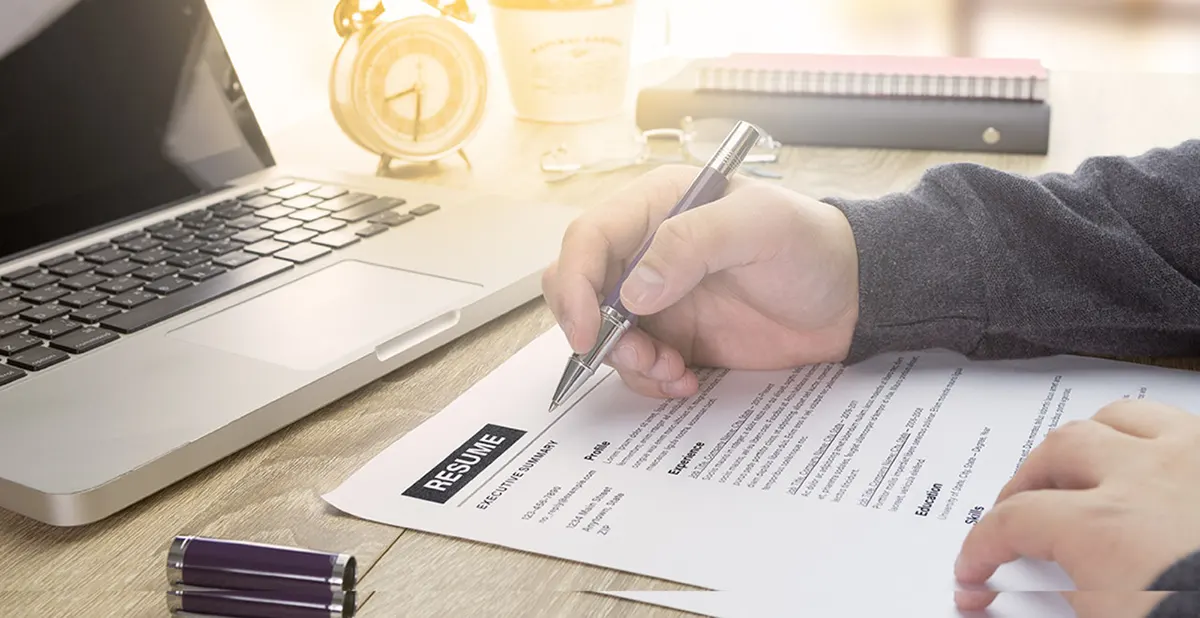
Obtaining an employment background check on yourself is an important step in ensuring the accuracy and completeness of your personal and professional history.
By following the step-by-step guide in this article, you can take control of your job search and avoid any surprises that may arise during the hiring process.
Remember to be proactive in addressing any potential issues or errors in your background check. Take action to correct them as soon as possible.
With a clear and accurate background check, you can approach your job search with confidence and land the position you’ve been working towards.
Take note that if you’re not confident enough to do it, you can always get the help of background check firms.
Just make sure to pick one with the best personal background check services that search public records, verify court records, review credit reports and review a person’s past involvement in crimes using credible data sources.
They can show reports that won’t come up in standard search engines.

